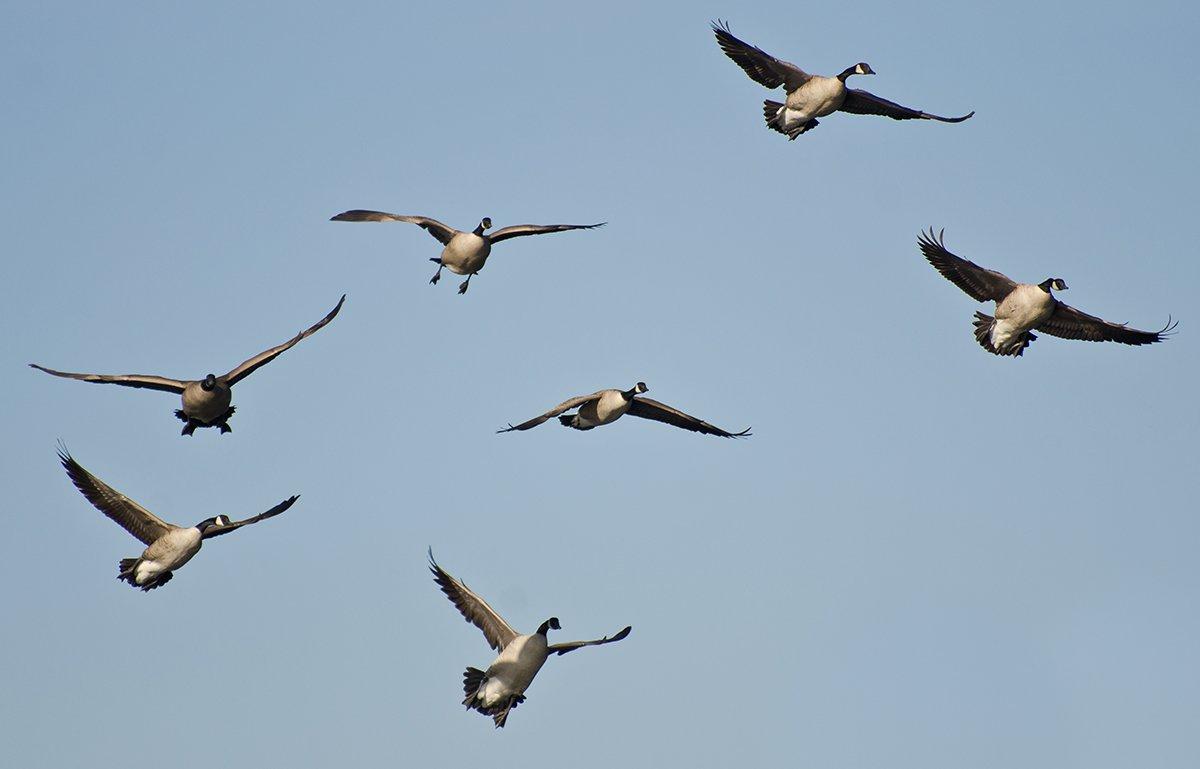Use a thoughtful, intuitive approach to take multiple birds from one flock

Sometimes, the stars align, and chances for doubles or even triples seem easy. Usually, however, shooting multiple birds requires forethought, strategy and quick reflexes honed by shotgunning practice. These tips can help you double or triple this season.
Prepare
This is Hunting 101 stuff, but to double in the field, you must practice at the range. Shoot at sporting clays ranges that offer lots of true pairs, and get used to the sight picture and body motion required to take doubles. Take the same attitude into the dove fields before waterfowl season, and hone your doubling and tripling skills.
Anticipate
Watch incoming birds intently to gauge how they might decoy. Note how they approach against the wind, and judge their body language. If they seem relaxed and content, they might put their feet down and sail right into your decoys. Birds that appear antsy, however, might merely streak overhead or past your blocks. You can still kill more than one, but you have to be ready for quick shots.
Another hint: Check your foot position before birds arrive. Right-handed shooters want their left foot pointing where they intend to shoot the first target. Twisting left or right against your body is a good way to miss three shots, not double.
Choose Targets — But Be Ready
As birds approach, pick out your likely first target. Avoid temptation to take the candy bird — one that inevitably decoys closer and sooner than others. Better, focus on a slightly more difficult target and then switch to the easier bird after killing the first. For example, if bluebills decoy left to right against a stiff southerly breeze, focus first on a drake farther back in the pack, and then pull up on the lead bird. Or, when honkers float in from straight downwind, swing on a hovering bird 35 yards out before going to the front goose.
One caveat: Ducks and geese often do the old switch-a-roo as they decoy. The lead bird might slow down, and one or two others will pass it. Be ready for this, and adjust your target choice accordingly.
Shoot One First
You'll naturally think double when flocks decoy, and that makes it easy to miss. I can't tell you how often I've shot holes in the air between a dozen or more buffleheads or teal. Basically, I got greedy and didn't focus on the initial opportunity. (Hint: It's far easier to double on a pair or small group of ducks or geese than with a large flock.)
Concentrate hard on making that first shot. You cannot double until you've singled. Focus like a laser on the initial bird, and block out thoughts of others until that bird is down. Your peripheral vision and reflexes will let you get on another target. If you planned your shot progression well, the second opportunity will seem instinctive. And if birds decoyed close or you're a quick shot, you might have a chance for three.
Finish Strong
Dropping two or three birds usually spurs a celebration, but don't be too quick with the high-fives. Reload quickly, and dispatch any cripples on the water. Nothing ruins a great shooting opportunity like losing a duck or goose.
This is especially important with diving ducks because … well, they dive — especially after being shot. When the action stops, review the scene to mark your birds. Shoot any duck that pops its head up. Keep shooting until it's finished. If you can't mark all the ducks, it's a good bet that one already dove or swam into cover. Get your retriever on the job quickly, and keep watch for escaping cripples slinking along the water's surface.
Twice or Thrice
You'll likely have the chance to double or triple this fall. Sound preparation, anticipation and execution will let you make the most of such moments. Will you double on every flock? Of course not. But maximizing more opportunities can boost your season and turn so-so days into memorable events.






